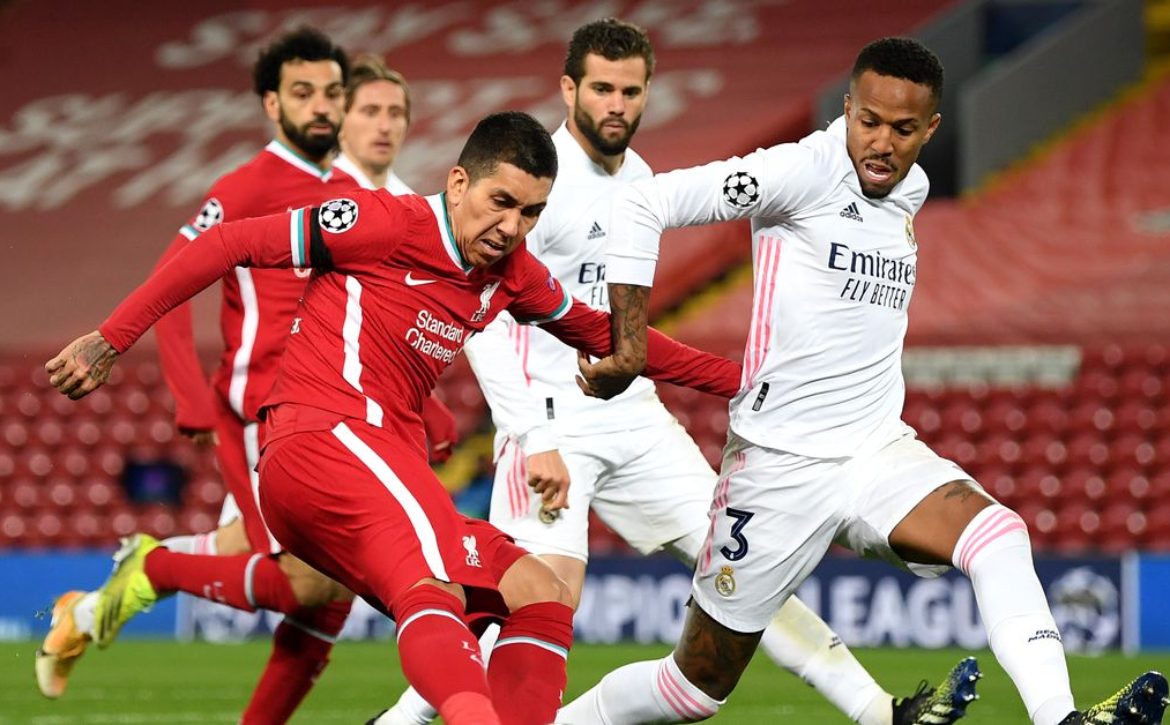
‘European Super League,’ the announcement tearing soccer apart, explained
Photo by Shaun Botterill/Getty Images
Some of the world’s biggest clubs are breaking off and forming their own league. What does it mean? International soccer was rocked by the announcement that 12 of the world’s biggest teams were breaking away from the UEFA Champions League structure to form their own super league, designed to run in direct competition with the sport’s biggest international competition outside of the World Cup.
The newly-created “European Super League” is billing itself as an alternate path to football profitability, one that will help secure the future of the sport while maintaining standard league play, which it calls “the heart of club football.” However, there are considerable concerns that the new league will kill local leagues in favor of huge money.
The New York Times reported that the teams had been holding talks in private for months before making their intentions official — a remarkable secret to keep under wraps considering the logistics of working out the league structure. The surprise aspect made the announcement feel even bigger when news finally broke.
Now European soccer’s governing body UEFA and international organizer FIFA are reeling, scared about their profit margins, while fans are questioning what this means for the sport’s long-standing traditions. Threats are already starting that could ban participating players from the World Cup, and the snowball is the biggest shift to come to the sport in decades.
What is the European Super League?
A conglomerate venture by a dozen of the largest teams in the world to compete in their own league, away from the established UEFA system, which has been in place since 1955. The new league will manage its own finances, pay clubs drastically more than they are currently making in the Champions League, and give them more autonomy over their direction.
In short: The biggest, richest teams in the world are splashing out to get a bigger piece of the pie, regardless what it does to smaller clubs, or the rest of Europe.
Which teams have signed up?
As it stands we have 12 “founding” teams, with organizers say another three will be added in the near future. For now the league will contain teams from England, Spain and Italy. This includes:
A.C. Milan (Italy)
Atlético Madrid (Spain)
Arsenal (England)
Barcelona (Spain)
Chelsea (England)
Inter Milan (Italy)
Juventus (Italy)
Liverpool (England)
Manchester City (England)
Manchester United (England)
Real Madrid (Spain)
Tottenham Hotspur (England)
Rounding out the field of 20 will be five rotating spots offered via qualification, but these will not be permanent members of the European Super League.
Why are these teams signing up?
Money.
Yes, there are lofty words about “elevating” European soccer, and evolving the game through the most powerful teams in the world playing each other more often, but really this is a play to make more cash. In Real Madrid’s explanation of the European Super League they didn’t even attempt to hide that the formation of the league was about the rich getting richer.
“The pandemic has revealed that a strategic vision and a commercial approach are necessary to increase the value and aid for the benefit of the football pyramid as a whole.”
The move comes after speculation in the fall that Wall Street investment bank JPMorgan Chase was looking into ways of sponsoring a new European competition, which prompted UEFA to institute reforms of the Champions League, and FIFA to threaten to pull sanctioning from players who participate in breakaway leagues.
However, these actions did not dissuade the founding 12 from going after the bag anyway. It’s reported that each of the founding teams in the European Super League will be paid an initial sum of $400 million each, more than the winner of the UEFA Champions League is awarded each year. That’s a tremendous amount of guaranteed money, with hopes broadcast rights and interest will push that figure even higher in upcoming years.
What does this mean for the European league establishment?
Understanding the complication begins with UEFA. As it stands each European league is a member of the organization, agreeing to send its top teams to the Champions League for soccer’s biggest club prize. Traditionally this would mean mega matchups like Liverpool vs. Real Madrid would not happen until the closing stages of the Champions League, or even the final — now those tantalizing matchups will be offered every week by the European Super League.
The Premier League, La Liga, and Serie A are all reeling from the announcement their biggest clubs are breaking off to join the new competition, but they’re stopping short from saying they’ll ban the rogue teams from play. The European Super League is claiming the new venture will not interfere with clubs playing in their previously established home leagues, with Super League games taking place mid-week, but it’s raising a lot of questions that are left unanswered.
If you follow the money then the motivation for these teams will be to put their best players on the pitch for the most lucrative compensation, and that will mean prioritizing the Super League over everything else — especially considering UEFA is already saying the participating Super League teams will be banned from playing the Champions League.
So, what’s the motivation to really try any more inside the Premier League, La Liga, or Serie A for the founding teams? The only prize that remains is bragging rights, and a paltry sum of money compared to what they’re making in this new venture. For example, Liverpool were paid approximately $240M by the Premier League in their revenue share, broadcasting rights, and award for winning the league in 2020. The Super League is paying them $400M before even taking the pitch.
So, with this consideration there’s significant concern the founding teams will treat their home leagues as second-rate competition, and choose not to prioritize their traditional league matches compared to their mid-week Super League clashes.
How are FIFA and UEFA reacting?
Understandably furious. This move basically cuts the legs out from under both organizations, who have been trying to shore-up the floodgates to prevent this from happening. UEFA is already saying they won’t allow Super League teams to play in the Champions League, while FIFA is saying they will prohibit any participating players from taking part in international competition, including the World Cup.
UEFA is pursuing legal action against the clubs too, but at this time it’s unclear what grounds that would be on, or whether suits would have merit.
Here’s the problem: How enticing are the Champions League or the World Cup without the biggest clubs and some of the sport’s most popular players? UEFA’s move seems more understandable since the European Super League runs in direct competition, but FIFA’s World Cup ban feels more like hollow saber rattling. They cannot afford to block out a wide swath of the sport’s best athletes over a gripe for money, and even if they follow through it might only serve to push people further away from international football, and play into the hands of the Super League in promoting club tribalism over everything else.
What happens next?
The European Super League doesn’t intend on waiting to start competition, saying they’ll take to the pitch as soon as possible. The next step is waiting to find out who the remaining three founding teams are, and then see who the five rotational teams will be for the league’s first season.
Without current representation from German Bundesliga teams like Bayern Munich or Borussia Dortmund, there’s speculation they could be added as future founding teams — or even potentially French juggernaut Paris Saint-Germain. For now everyone is in “wait and see” mode, but the future of not only club play, but international play is in crisis as a result of the new league.
The teams founding the European Super League are committed to their new path and are showing no signs of backing down. Soccer will never be the same again.
Read More


